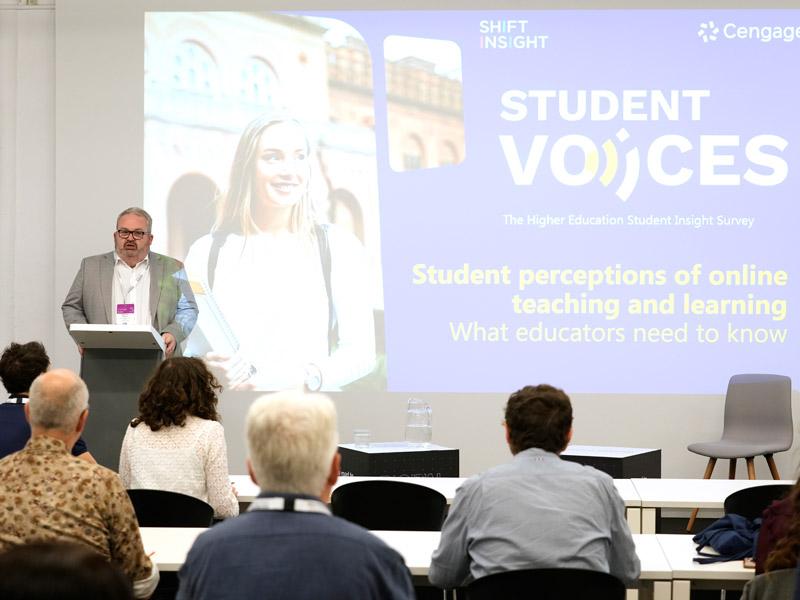
Shifts in student perceptions of online teaching and learning in the post-pandemic era

The past three years have seen a more dramatic shift in higher education than for decades before. The pandemic forced students and institutions into new ways of working, and after adapting to the new normal, they’re not prepared to revert to traditional ways of teaching and learning. At the 2023 THE Digital Universities Europe event, global education technology company Cengage presented its latest research on the challenges facing students today, including their relationship with technology and sense of engagement with their courses and institutions.
Matthew Keown, head of sales for the UK and Europe at Cengage EMEA, discussed one of the biggest changes since the company began its Student Voices report. “In 2018, the key reason given by students to attend university was to pursue their interests,” he explained. “In 2023, there’s an increased element of personal development and improving their job prospects. They want transferable skills that will enhance their employability when they leave university.”
The cost-of-living crisis is also casting a shadow over students’ experiences in higher education, with 42 per cent citing financial difficulties as one of the key challenges they face. Other common struggles reported were time management, academic pressure and mental health concerns.
In 2020, 47 per cent of students reported that in-person was their preferred modality, compared with 36 per cent in 2023, Cengage found. Although hybrid course delivery formats align more closely with students’ preferences, 20 per cent reported dissatisfaction with the balance of online and in-person elements of their courses. While students felt confident using digital tools to support their learning, they found other aspects of higher education more challenging, such as managing their time, independent learning and preparing for assessments.
Mobile phones feature more frequently as a study tool today. About 96 per cent of students reported that they spend at least some time studying on their mobile phone, echoing a recent report by Unesco on the role of smartphones in student lives. However, the report indicated that many students wish for more personal or one-to-one support. “Students want flexible options to consume information in different ways,” said Keown. “They want to learn on the go as part of a more balanced lifestyle.”
The report highlighted that those who said their course provided opportunities for career development also reported feeling a sense of community and belonging with their institution, said Keown. Based on the research, Cengage recommends that institutions ensure their learning solutions cater to diverse motivations – whether it’s academic support, personal development or student well-being. “Institutions should enhance accessibility and this will encourage more of a sense of community and belonging. Platforms can help with more personalised support and, in future, there will be scope to integrate artificial intelligence and other tools to enhance student engagement,” Keown concluded.
The speaker:
- Matthew Keown, head of sales for the UK and Europe, Cengage EMEA
Find out more about Cengage.

